Sat, 30 December 2023
This week we have a special Rural Crime Episode for you. I am speaking with Philip Clarke, the executive Editor of Farmer's Weekly. Farmer's Weekly is a publication based in the United Kingdom. I have been reading so many stories about rural crime in the U.K. that I wanted to speak with somebody who understood the scope and specifics of the issues there better than me. It seems that three out of every four articles I read about rural crime in the U.K. are published by Farmer's Weekly, so that seemed like a good place to begin my search. I was very fortunate that Philip was willing to take the time to come on the show. In the interview we talk about whether or not there really is a large problem with rural crime in the U.K. We also discuss the specific problems they are facing, we clarify some terms and we discuss the differences between the U.S. and U.K. You are going to really enjoy this very interesting interview.
Direct download: OFI_1941_Replay_Phillip_Clarke_-_121423_8.04PM.mp3
Category:rural crime -- posted at: 12:30am MDT |
Fri, 29 December 2023
Merry Christmas everyone! I always love creating and recording our Christmas episode for your each year. However, this year is a little bit different. This year I have a guest on the show for Christmas who is a person who has done something very compassionate for people who are unbelievably less fortunate than anyone born here in the United States Of America. You may remember from our rural crime episode #1240 that the final story I covered was about a woman named Caroline Clarin in Fergus Falls, Minnesota who had been helping families to escape Afghanistan and come to the United States. She has initially been introduced to these families through her work as an agricultural advisor, through the USDA, in Afghanistan. And of course after being there, meeting these families and seeing the poverty, corruption and violence for herself she was compelled to help them leave. After covering that first story, I decided to reach out to Caroline and see if she would do an interview to discuss the amazing humanitarian work she had done and was still doing as part of our Christmas episode. It turned out that the original story I had read mis-represented what had actually happened a little bit. Today, she is on our show to discuss some of what she learned in Afghanistan, how she helped to get families out, what it was like when she learned the U.S. was pulling out of Afghanistan in August of 2021 and what she is still striving to do. I cannot imagine anything more Christmasy, regardless of your belief system, than what Caroline did between 2013 and 2021 in helping five families relocate to the U.S. from Afghanistan or what she is still striving to do. So, Merry Christmas everyone, and her is a heart warming story to help you appreciate just how good we have it in the U.S.
Direct download: OFI_1964_Replay_1264_-_121423_7.08PM.mp3
Category:farming -- posted at: 12:30am MDT |
Thu, 28 December 2023
Our guest today is very good at keeping a secret! At almost the moment that we finished our interview, he ended the call and proposed to his girlfriend! And, I would not be including this in the show notes if she had not said yes. Congratulations to the happy couple! Well, Landon Wenger is certainly laying the foundations for the rest of his life. At age 19 he has been named as a state winner in Ohio for agricultural sales entrepreneurship proficiency. This stemmed from him purchasing his own Christmas Tree farm when was just sixteen years of age! It is called "Wenger's Winter Greens" and he has been steadily planting trees every year so that he has trees to sell every year. I have always been curious about how this business works with the slow return on investment. In today's episode Landon will help to break all of that down for us. He will also talk about his vegetable production business and his time in the FFA. |
Wed, 27 December 2023
Today's episode is a "best of" episode. I interviewed FFA students from all over the U.S. last Christmas about the community service projects they were doing, and I wanted to bring it back to you this year. |
Tue, 26 December 2023
Starting tomorrow and going through the 6th of January, I am running "best of" episodes. I can do 7 episodes per week, but I need a break! And I am taking one. I hope you enjoy the memories everyone!
|
Mon, 25 December 2023
Merry Christmas everyone...just a quick check in to say I appreciate you on this most special of holidays!
Direct download: OFI_1936_Christmas_Day_-_121423_7.04PM.mp3
Category:farming -- posted at: 12:30am MDT |
Sun, 24 December 2023
Christmas is a very special time of year, and it is really where the community service portion of the FFA can shine. On today's episode we are going to profile a chapter, Northwestern FFA from West Salem, Ohio, that shines very bright at this time of year by helping to provide much needed supplies for people all around the world. Joining us today to represent Northwestern FFA is Kade Tegtmeier, the chapter president, and Kate Johnson, a assistant officer. Both of these students have a passion for agriculture that cannot be contained just by the FFA, so they both continue to be involved in the 4H as well. Led by their great FFA Advisors Kade and Kate, along with the rest of their chapter, get to provide service every Christmas while at the same time being reminded of how fortunate we all are here in the U.S.
Direct download: Northwestern_FFA_Episode_1935_-_12623_11.44AM.mp3
Category:FFA -- posted at: 12:30am MDT |
Sat, 23 December 2023
Tip Of The Week Don’t lose money by saving electricity at Christmas Rural Crime In The U.S. Across The Pond, Down Under And Up Above https://www.farmersjournal.ie/news/news/quads-worth-40-000-stolen-in-donegal-797290 Africa Chalk One Up For The Good Guys https://news.yahoo.com/isp-pursuit-suspect-found-under-045900054.html https://marketrealist.com/how-did-this-farm-couple-steer-a-9-million-insurance-fraud/ More Places You Can Listen to Off-Farm Income And Matt Brechwald:
Direct download: OFI_1934_Rural_Crime_-_121523_4.44PM.mp3
Category:rural crime -- posted at: 12:30am MDT |
Fri, 22 December 2023
Julia McCarthy is a farmer, rancher and freelance writer from Grangeville, Idaho. Several months back I read an article of hers in a publication about agriculture in my state called Ag Proud Idaho. The topic caught my eye and I liked the writing, so I invited Julia to be a guest on the show. Finally, we got the interview done. Freelance writing is one of my favorite forms of off-farm income. It can be done anywhere, and it significantly predates podcasting. In today's episode Julia talks about her path to becoming a freelance writer, some of the hard lessons she has learned and some tips and tricks of the trade. If this is something you are considering for your off-farm income, in any topic area, this episode is a must for you!
Direct download: Julia_McCarthy_Episode_1933_-_121223_6.56PM.mp3
Category:farming -- posted at: 12:30am MDT |
Thu, 21 December 2023
On tomorrow's Ag Business Episode I am profiling a freelance, agricultural writer. This is one of my favorite forms of off-farm income. For today's re-cap episode I went back to episode #1233 and an interview I did with Rachel Gabel of the "The Fence Post Magazine". In this interview we talked a lot about how freelance writers can get started and be successful, but we did it from the editor's perspective. I thought this was the perfect tie in for tomorrow's show where we will hear this from a writer's perspective.
Direct download: OFI_1932_Re-Cap_Episode_-_121323_1.38PM.mp3
Category:farming -- posted at: 12:30am MDT |
Wed, 20 December 2023
Lillie Cagle is a 2023 National Proficiency Winner in the category of Agricultural Education. She is also a Tennessee State Officer and a previous guest on this show. Lillie just appeared on Off-Farm Income in April of 2023 after becoming a state officer. She had a phenomenal SAE and was doing a ton of good for agriculture. In just the span of 6 months from being on the show she found herself on the big stage in Indianapolis receiving an National Proficiency Award for her efforts. I wanted to have her back on the show to tell her congratulations and to hear all about it!
Direct download: Lilly_Cagle_Episode_1931_-_121323_2.25PM.mp3
Category:FFA -- posted at: 12:30am MDT |
Tue, 19 December 2023
A quick farm update for all of you today, and a sure fire method for keeping any livestock or dogs from going under your fences.
Direct download: OFI_1930_Tuesday_Episode_-_121423_7.02PM.mp3
Category:farming -- posted at: 12:30am MDT |
Mon, 18 December 2023
Teak Barhaug is the past president of the Alaska FFA, a current student at the University Of Alaska - Fairbanks and a former resident of Wyoming. When Teak's father transferred to Alaska to finish his career in the National Forest Service it came at a bit of a price. Teak's mother, Kimberly, was a former FFA member, Teak's brother had been involved in the 4h and was progressing into the FFA and Teak had been involved in the 4H and was planning on progressing to the FFA. However, there was no FFA Chapter in Seward, where they would be attending high school. So, Teak and his family took it upon themselves to form an FFA Chapter. This happened with the minimum number of 10 members, and it took off from there. This escalated all the way to Teak serving as the state president of Alaska. During Teak's time in high school he worked in the agri-tourism industry, taking groups of tourists into the wilderness to pan for gold and teaching the how. Today, Teak is studying biology and botany in college and is loving the life he has found in Alaska.
Direct download: Teak_Barhaug_Episode_1929_-_121223_3.30PM.mp3
Category:farming -- posted at: 12:30am MDT |
Sun, 17 December 2023
For Information Like Degrees Offered, Annual Costs, Etc., Please Click The Banner Below: |
Sat, 16 December 2023
Tip Of The Week What if you are attacked with pepper spray? Rural Crime In The U.S. https://salinapost.com/posts/8d9358f2-1c94-465a-9ae2-f48418f92e8f https://kchanews.com/2023/12/06/floyd-county-rural-law-enforcement-rates-going-up/ Across The Pond, Down Under And Up Above https://www.agriland.co.uk/farming-news/nottinghamshire-farm-suffers-thousands-of-pounds-of-damage-to-crops-from-quads/ Africa https://www.the-star.co.ke/news/realtime/2023-12-07-two-shot-killed-in-banditry-attack-in-igembe/ Chalk One Up For The Good Guys https://www.drovers.com/news/industry/iowa-cattleman-faces-30-years-fraud-theft https://mageenews.com/maltb-investigators-recover-stolen-tractor-in-yazoo-county/ More Places You Can Listen to Off-Farm Income And Matt Brechwald:
Direct download: OFI_1927_Rural_Crime_-_12923_11.32AM.mp3
Category:rural crime -- posted at: 12:30am MDT |
Fri, 15 December 2023
Forrest Pritchard is a regenerative and multi-generational farmer from the Shenandoah Valley of Northern Virginia. His families roots on the farm go to the mid-1800's, and today he has transformed the look and production of the farm back to something that might resemble how farmsteads operated in that time. Forrest was not always interested in regenerative, direct to consumer farming. However, after trying to make it as a commodity based farmer, he went looking for larger profit margins, and this is where he landed. It helped that this was a manner of farming that offered him the ability to provide service and food to his surrounding community. He has been at it since the mid 1990's. Forrest is co-author of the outstanding book, "Start Your Farm", that he wrote with Ellen Polishuk. I first found out about this book after seeing a quote from it on a social media post discussing the fact that small farmers still choose the commodity based farming model even though their small acreages could never possibly produce a profit on those low margins due to lack of production capability. This led me to want to know more. The book is full of great advice, and it is the book I would write if I were ever to sit down to actually do it. Thankfully, Ellen and Forrest have done it for me, and I can concentrate on podcasting!
Direct download: Forrest_Pritchard_Episode_1926_-_121223_7.17PM.mp3
Category:farming -- posted at: 12:30am MDT |
Thu, 14 December 2023
On tomorrow's Ag Business Episode I am speaking with a farmer and author who has written a book about how to start your farm. I thought this interview that I did with Mara Fielder could bring some real life to the interview I am playing tomorrow. On tomorrow's show we will talk about timing and things to take into consideration when beginning. But, in this interview with Mara, we hear it from somebody who was going through it at the time, and it adds a sense of a first hand witness to the situation.
Direct download: OFI_1925_Replay_Of_1155_-_121323_3.44PM.mp3
Category:farming -- posted at: 12:30am MDT |
Wed, 13 December 2023
Andrew Pingenot is the Chapter President of the Vinton-Shellsburg FFA Chapter, he is a distributor of high quality animal feeders and he is just a junior in high school. Farming and raising cattle on his families multi-generational farm in Iowa, Andrew has embraced the family tradition. As such, when he was 15 years old, he and his father attended the Iowa Beef Expo in an effort to learn more about the products and ideas out there for their beef business. While at the expo, Andrew picked up a brochure from a company called Best Livestock Equipment because they had a round bale feeder on display that looked to be very high quality. Andrew had been frustrated with the quick deterioration of the round bale feeder on their farm, so he followed up with a phone call days after the expo. One thing led to another, and the manufacturer offered Andrew the opportunity to become a distributor for them in his region of Iowa. Two years later, Andrew has purchased 0ver 10 semi-loads of livestock feeders and has sold them all. As we conducted the interview he was just finishing selling his 11th semi load! This is opened Andrew's eyes to the possibilities of business ownership coupled with a farming enterprise. He is definitely benefiting from this advanced education!
Direct download: Andrew_Pingenot_Episode_1924_-_12923_12.39PM.mp3
Category:FFA -- posted at: 12:30am MDT |
Tue, 12 December 2023
Applying for, receiving and working in an Internship was one of the best things I did while I was in college. And, even though it sounds like everyone does this when you listen to my Ag College Episodes, that is not true. Many college students allow this opportunity to pass them right by. On today's episode I really want to encourage students to get involved in internships during the time they are in post-secondary education, whether that be trade school, community college or a four year university. There are so many reasons that this will benefit you, including:
Direct download: OFI_1923_Tuesday_Episode_-_12723_1.20PM.mp3
Category:Agricultural Colleges -- posted at: 12:30am MDT |
Mon, 11 December 2023
Pepper Elmore is the Chapter Reporter for the Kremlin FFA in Kremlin, Oklahoma. Knowing she wanted to be part of the FFA, when it came to join Pepper chose to go to school at Kremlin-Hillsdale, in spite of the fact that it is 45 minutes from her ranch, because her local school did not offer agriculture. Pepper is well versed in fitting, showing and husbandry of cattle through her families business of raising purebred Simmental Cattle. Pepper is clearly a goal setter and she thinks long term. She has already identified the career that she wants to have after college of becoming a dual purpose chiropractor, working on both people and livestock. She also knows that she wants to run track in college, and she wants that place to be Oklahoma State University. With so many decisions already made, now it is just down to mapping out the path and following along. I think Pepper is in perfect position to make this all happen!
Direct download: Pepper_Elmore_Episode_1922_-_12523_1.32PM.mp3
Category:FFA -- posted at: 12:30am MDT |
Sun, 10 December 2023
For Information Like Degrees Offered, Annual Costs, Etc., Please Click The Banner Below: |
Sat, 9 December 2023
Tip Of The Week Should we throw rural crime prevention to the dogs? Rural Crime In The U.S. https://drgnews.com/2023/12/07/203349/ https://www.skooknews.com/2023/12/farm-burglarized-near.html Across The Pond, Down Under And Up Above Africa https://www.namibian.com.na/forum-fights-for-no-bail-for-stock-theft-accused/ Chalk One Up For The Good Guys https://thesungazette.com/article/news/2023/12/07/two-crime-fighting-canines-share-prize-as-californias-top-farm-dog/
More Places You Can Listen to Off-Farm Income And Matt Brechwald:
Direct download: OFI_1920_Rural_Crime_-_12823_7.58PM.mp3
Category:rural crime -- posted at: 12:30am MDT |
Fri, 8 December 2023
Will Meadows is a multi-generational cattle rancher from Alabama and a very successful personality in agricultural social media, posting videos on TikTok, Youtube, Facebook and Instagram. He is now generating revenue from his social media channels as well as selling bulls for his families farm through his video efforts. On today's episode we are going to talk about how he has accomplished this in under two years, what his process is, what type of equipment he uses and how he chooses what to talk about. This is a young man who loves to talk about the life he loves in agriculture, and he has turned that into a business using today's social media technology!
Direct download: Will_Meadows_Episode_1919_-_112723_12.04PM.mp3
Category:farming -- posted at: 12:30am MDT |
Thu, 7 December 2023
On today's re-cap episode I want to explore the idea of building your own agricultural communications business. This is something that can literally be done from anywhere, and my previous guest did exactly that. Tomorrow's ag business interview involves an young man who is an up and coming cattle rancher and who is making his off-farm income through posting about his farm on social media. Developing your skills in this area as you advocate can lead to the skills that would allow you to start a communications business just like our re-cap guest, Lyndsey Murphy.
Direct download: OFI_1918_Replay_Of_792_-_12723_10.19AM.mp3
Category:farming -- posted at: 10:45am MDT |
Wed, 6 December 2023
Vanessa Trotter is a 2023 National Proficiency Winner in the category of Nursery Operations. This all began when she was 8 years old. Her father had just recently purchased his families farm that had been auctioned off when his grandfather passed away 20+ years earlier. After the purchase he approached Vanessa, the eldest of four children, and told her that she would be going to college in 10 years and it was time to start thinking about how to make some money to pay for that. This is when TNT Farms was born with a small pumpkin patch that Vanessa tended. She later sold the pumpkins to customers in her area, and she was hooked. Since that time Vanessa has grown this business. Today she has purchased three greenhouses, started selling products at a local farmers market and selling directly off of her farm. Vanessa is now in college, studying agricultural business, with the hopes of being her own boss in the future. However, she is going to pass TNT Farms to her siblings for multiple reasons. Each of the will have an SAE they can move right into when their time in the FFA comes. Also, it can serve as a revenue source for them to also save for college. What a great family legacy that Vanessa begin with a simple pumpkin patch.
Direct download: Vanessa_Trotter_Episode_1917_-_12123_12.08PM.mp3
Category:FFA -- posted at: 12:30am MDT |
Tue, 5 December 2023
One of the ways that I deal with stress in my life is by writing. I often write things that nobody ever sees, but it helps me when I get my thoughts on out on paper so having an audience for what I have written is not important. Last night I had an experience that really made me give thought to things I have been observing in our society that have been bothering me. It was still on my mind this morning, and I sat down and put it into words. I have attached the text below for you to read if you wish. And, aside from the introduction, today's episode is my reading of this article:
Direct download: OFI_1916_Tuesday_Episode_-_12423_4.19PM.mp3
Category:farming -- posted at: 12:30am MDT |
Mon, 4 December 2023
Kendra Downing is a 2023 National Proficiency Winner in the category of Ag Sales - Entrepreneurship. Growing up as the 4th generation on her families farm she, her sister and her parents were sitting on the front porch one day contemplating what enterprise the kids could start to generate revenue. The idea of a pumpkin patch was proposed, and it was decided to purse that endeavor. That was the beginning of the Downing Daughters Pumpkin Patch. Over time, Kendra and her sister have grown this enterprise to include a corn maze, which started out under an acre and is now 5 acres, all designed by hand with no technological assistance. In addition to this, they started purchasing products from other farmers in the area to sell in a farm stand that they operate out of an old barn on their grandmother's property. This all has evolved into a national proficiency award today, but its beginnings were Kendra's FFA Advisor looking at what she was doing and telling her that she was going enter the competition. The rest, as they say, is history. Kendra is now in college, studying everything she can get her hands on in the hopes of one day farming full-time with even more, direct to consumer enterprises to share with her community.
Direct download: Kendra_Downing_Episode_1915_-_112923_4.14PM.mp3
Category:FFA -- posted at: 12:30am MDT |
Sun, 3 December 2023
For Information Like Degrees Offered, Annual Costs, Etc., Please Click The Banner Below: |
Sat, 2 December 2023
Tip Of The Week No cameras? Use the snow. Rural Crime In The U.S. https://www.facebook.com/share/yHRUEctgywjRVnWC/?mibextid=K35XfP https://www.agdaily.com/livestock/charges-dismissed-in-bizarre-bleaching-of-wyoming-cows/ Across The Pond, Down Under And Up Above https://www.cambstimes.co.uk/news/23958310.horse-riding-equipment-stolen-stables-emneth/ https://www.bbc.com/news/uk-england-dorset-67566857 Africa https://farmersreviewafrica.com/saai-to-stop-livestock-thieves-in-their-tracks/ Chalk One Up For The Good Guys
More Places You Can Listen to Off-Farm Income And Matt Brechwald:
Direct download: OFI_1913_Rural_Crime_-_12123_7.31PM.mp3
Category:rural crime -- posted at: 12:30am MDT |
Fri, 1 December 2023
Lexi Wright is the host of the Farming On Purpose Podcast as well as the owner of the agricultural marketing firm, Wright At The Moment. She, her husband and their four children are cattle and row crop farmers in Kansas who are finding their way down the winding path of the ultimate lifestyle business. In today's interview with Lexi we talk a lot about entrepreneurship in agriculture and how she found her pathway. Lexi also puts out a couple of nuggets of valuable information, such as how to make the social media algorithms work on your behalf to connect you with like minded people and to learn information that will help you in your pursuits. I found a lot of cross over with this talented podcaster, farmer and entrepreneur. And, you will too!
Direct download: Lexi_Wright_Episode_1912_-_111723_2.17PM.mp3
Category:farming -- posted at: 12:30am MDT |
Thu, 30 November 2023
Machinery Pete, Greg Peterson, has become a household name on farms throughout the U.S. His passion for tractors and auctions coupled with his vision of a resource for farmers that want to buy and sell used tractors have led him to great heights in agriculture. He was first on the show back in 2015, and I am running his episode again today to tie in with tomorrow's Ag Business Episode in which I will be profiling an up and coming agricultural podcaster who I have no doubt will rise to great heights as well.
Direct download: OFI_1911_Replay_Of_056_-_113023_6.58PM.mp3
Category:farming -- posted at: 7:13pm MDT |
Off-Farm Income

Categories
generalfarming
FFA
rural crime
vicuna
Agricultural Colleges
Archives
AprilMarch
February
January
December
November
October
September
August
July
June
May
April
March
February
January
December
November
October
September
August
July
June
May
April
March
February
January
December
November
October
September
August
July
June
May
April
March
February
January
December
November
October
September
August
July
June
May
April
March
February
January
December
November
October
September
August
July
June
May
April
March
February
January
December
November
October
September
August
July
June
May
April
March
February
January
December
November
October
September
August
July
June
May
April
March
February
January
December
November
October
September
August
July
June
May
April
March
February
January
December
November
October
September
August
July
June
May
April
March
February
January
December
November
| S | M | T | W | T | F | S |
|---|---|---|---|---|---|---|
| 1 | 2 | |||||
| 3 | 4 | 5 | 6 | 7 | 8 | 9 |
| 10 | 11 | 12 | 13 | 14 | 15 | 16 |
| 17 | 18 | 19 | 20 | 21 | 22 | 23 |
| 24 | 25 | 26 | 27 | 28 | 29 | 30 |
| 31 | ||||||
Syndication


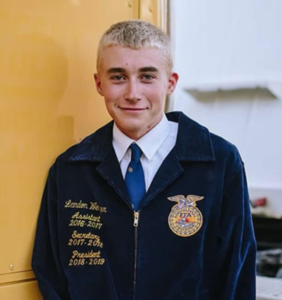



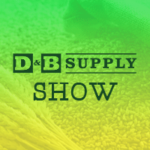

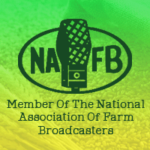
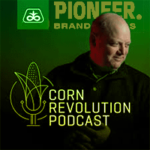


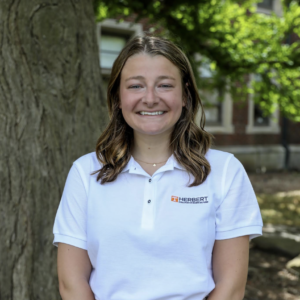 Carragan Fields[/caption]
Carragan Fields[/caption]
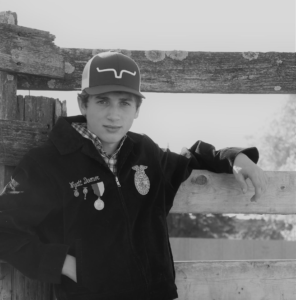 Wyatt Deemer[/caption][caption id="attachment_421341" align="alignright" width="120"]
Wyatt Deemer[/caption][caption id="attachment_421341" align="alignright" width="120"]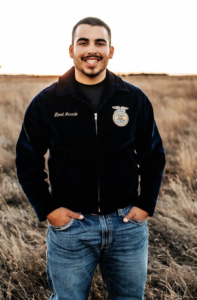 Morel Jurado[/caption]
Morel Jurado[/caption]